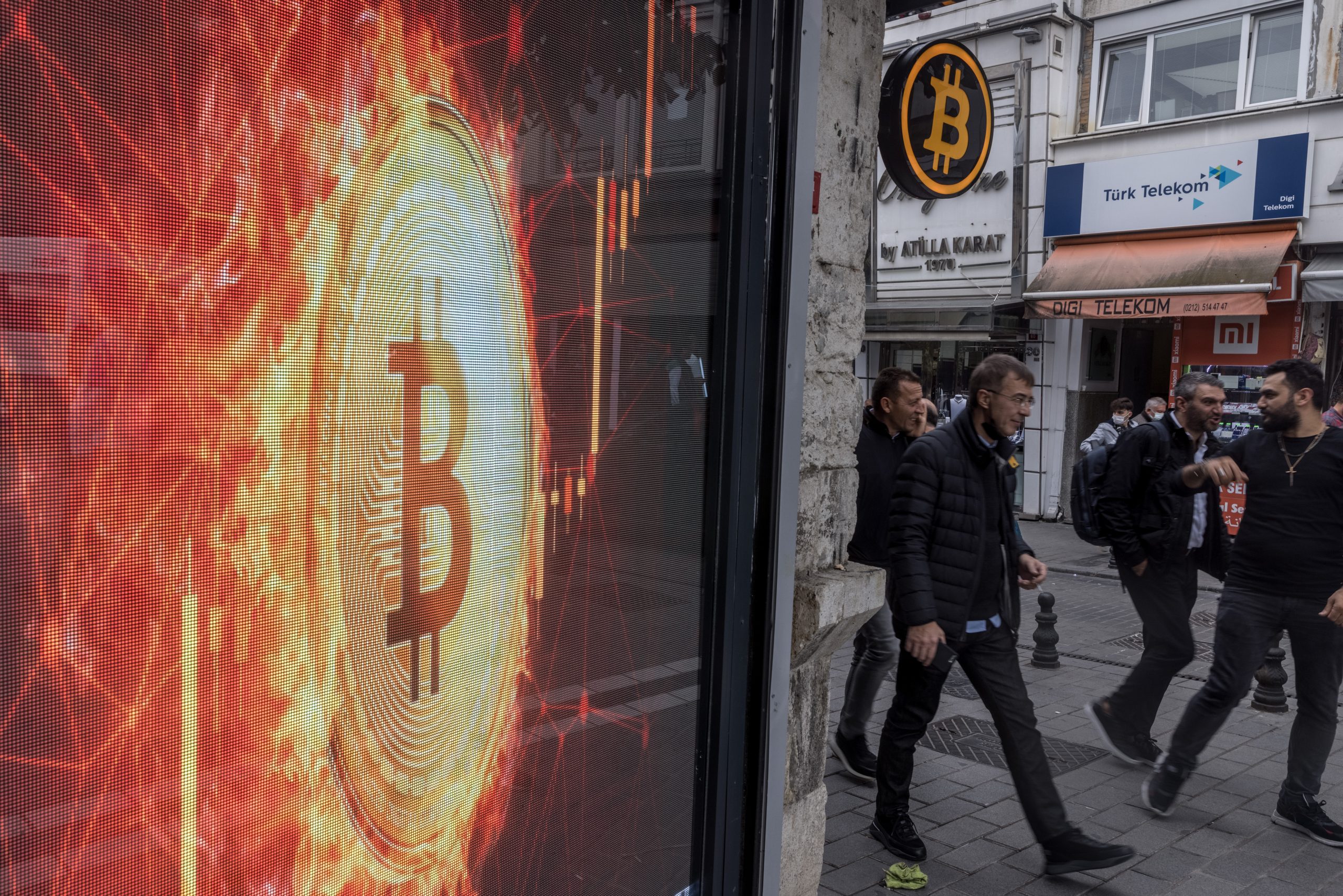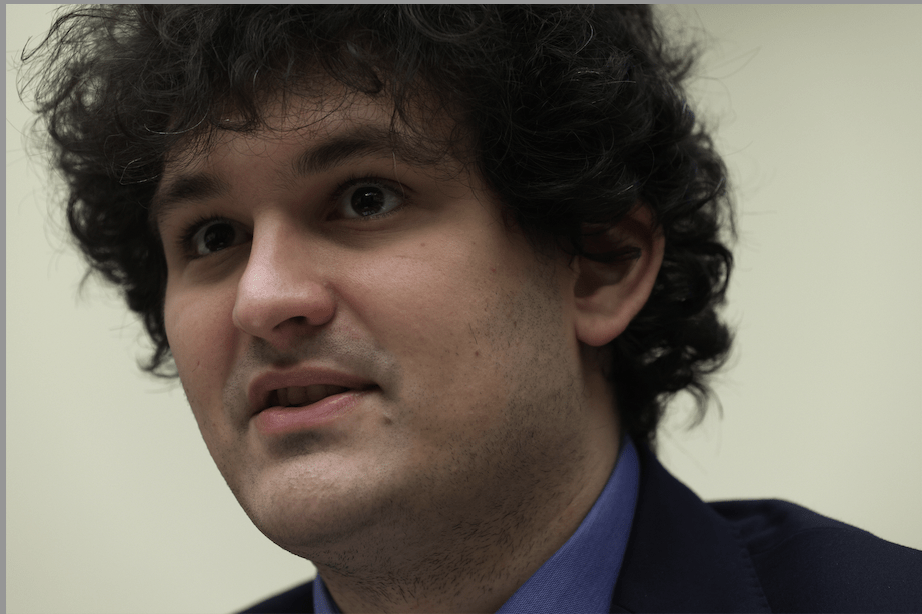Crypto Committed
Financier Anthony Scaramucci was well known among Wall Streeters and hedge fund insiders before he burst upon the national stage as White House communications director in July 2017. A scant 11 days after taking the job he was fired for dressing down a Washington Post reporter.
Now, Scaramucci is pounding the table for a different reason. Since December, his firm Skybridge Capital has been among the institutional investment firms allocating significant funding to digital assets. Scaramucci’s investment thesis hinges on supply and demand considerations, Fed monetary policy, stimulus payments and fiscal spending as the critical catalysts advancing cryptocurrency prices.
Scaramucci’s fifth book, The Sweet Life with Bitcoin: How I Stopped Worrying about Cryptocurrency and You Should Too! is scheduled for publication this month. He’s granted Luckbox permission to become the first periodical to excerpt passages. He also sat down with Luckbox to provide insight into his upbeat cryptoinvestment outlook.
You’ve identified two themes that support your bullish cryptocurrency investment thesis. One is mainstream and institutional adoption. The other is the liquidity that the Fed and government stimulus is providing by printing money and through fiscal spending. Has anything changed in that outlook?
Yes, to the upside. I’m surprised by the proliferation of digital merchandise, NFTs and digital art. I’m also surprised by the volume of digital applications, known as dApp’s, that are in use right now around ethereum.
I see bitcoin more as a collectible commodity. Its use case to me could be as a store of value or currency. It doesn’t have to become a full-fledged currency. It could just be a store of value and still produce tremendous success for investors.
It’s way bigger than I initially thought it was. When I first got our clients into bitcoin, there were probably 70 million users, and there are 125 million today, with 46 million in the U.S. I agree with [CEO of Ark Invest] Cathie Wood that there will be one billion users of bitcoin by the end of 2025.
Will there be enough bitcoins for that many investors?
I’ve been on The Street a long time, and I know that supply and demand do matter. If you’ve got a billion users, and you’ve got 18 million coins left, and there are 49 million global millionaires—according to JP Morgan’s research—then we don’t have enough bitcoins for each millionaire in the world to own one.
Yes, it’s a supply-demand thesis. It’s printing money. And people say, “Well, you know, what you’re saying is too good to be true.” I tell them that as investors, when someone tells you something’s too good to be true, run.
But there are things that are too good to be true. Look at [bitcoin detractors] Charlie Munger or Warren Buffett. Their performance is too good to be true. If you gave them $10,000 50 years ago, you’d have half a billion dollars now. Is that too good to be true? How about Amazon? If I put $10,000 into the IPO in 1987, I would have $21 million now. Is that too good to be true?
Whether you like it, or I like it, or Charlie Munger likes it and Warren Buffet hates it, fine. I don’t care. It’s happening with or without you, so I would rather understand it. And I would rather get my clients conditioned for it so that they can say, “This guy offered me good advice.” That’s our job: to analyze and curate investments for people.
Have you modeled the regulatory risk for bitcoin?
Let’s look at the extremes. The United States bans bitcoin tonight. Bitcoin is considered property, right? The IRS has ruled that bitcoin is an intangible. So when somebody suggests that U.S. regulators are going to ban bitcoin,
they are going to have to abrogate 250 years of property rights in the United States. They are going to have to explain to people and the courts that this piece of property that I own and pay taxes on is intangible. That’s going to be tough to prove.
So, I throw out the Armageddon scenario. The country’s really in a lot of trouble if you’re now ripping up 250 years of legal precedent, and corporate and commercial contracts. They are not going to be able to completely ban bitcoin. So the question is, are you going to be able to use it? And are they going to overtax it? Are they going to over-regulate it? That’s where the issue is.
Remember that if you can use it in the United States and China, there are 200 other countries, so it’s not going to zero. To the contrary, I liked seeing Gary Gensler [chairman of the U.S Securities and Exchange Commission] more-or-less saying that he wants to regulate it, and he wants to make it part of the financial system.
Some outspoken senators are beginning to recognize that there are 46 million people who own bitcoins in the U.S. Despite everything Sen. Elizabeth Warren [D-Mass.] has said about bitcoin in the past, she’s now saying, “Wait a minute, I’m a progressive. Bitcoin is addressing the inequity of the underbanked.” Bitcoin is going to increase transactional activity for people who should not be charged transaction fees or 19% interest, so even Warren is softening on it.
Is there any event or milestone that might signify a new level of adoption by institutional investors?
That’s a great question. At the beginning of the year, myself included, people thought there’s going to be huge institutional adoption. This past December, MassMutual [the Massachusetts Mutual Insurance Co.] made an announcement that they own $100 million in bitcoins, which is now worth $200 million.
Recently, Larry Fink [CEO of the BlackRock investment management company] mentioned on CNBC that he is not sensing strong client interest in bitcoin. He is not saying he doesn’t own a little bit of it. He says he does. He’s just saying the demand isn’t mainstream yet.
But when Fink goes on the [CNBC television show] Squawk Box and says he’s seeing interest among his clients, that’s going to be one of the seminal moments. He’s the Big Kahuna.



















